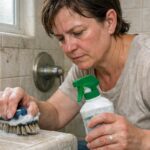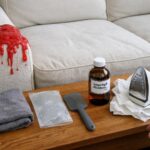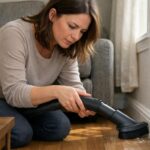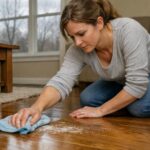People use vinegar for cleaning around the house, as it is an eco-friendly and non-toxic home cleaner. Cleaning and disinfecting with vinegar is ideal because standard white vinegar contains between 4% and 7% acetic acid. Here are some ways to do household cleaning with vinegar.
1. Clean Surfaces with Vinegar
Distilled white vinegar is a great cleaner that you can use to clean nearly any surface in your house. It has an acidity level of around 5%, which is comparable to that of several common household multipurpose cåleaners. It can also be used to polish metal. It can clean almost any surface in your house, including countertops.
This all-natural household cleaner is very effective in cleaning your coffeemaker, removing hard water stains on glassware, and rinsing waste bins. It also keeps colors and whites white and repels ants. It is also used to unclog shower heads and clean mineral deposits from faucets. There are many other uses for distilled white vinegar in your house cleaning.
2. Vinegar as a Natural Disinfectant
Cleaning your house can be a tedious, time-consuming chore. You can save time by cleaning and disinfecting with vinegar. You can use vinegar for cleaning blinds, windows, and sinks. This natural disinfectant is also a great choice for disinfecting high-risk surfaces, like countertops and refrigerator shelves. This vinegar solution will leave your house smelling fresh and clean. You can use it on a daily basis and enjoy all of its benefits!
Vinegar and Baking Soda
In addition to its disinfecting properties, vinegar is also effective in removing stubborn stains. A common example of this is soap scum, which is extremely difficult to remove. You can combine vinegar with baking soda to remove tough stains. It also has odor-killing properties and can help remove mold and soap scum. It can also be used to clean certain types of floors. Use vinegar cleaning solution on the affected areas and allow the cleaning solution to sit for an hour.
You can use vinegar as a general cleaning agent for cleaning your house. It is a natural anti-bacterial that can remove mold and dust from any surface. It can remove odors from rooms overnight, too. It can also be mixed with water or olive oil to remove stains. A solution of one part vinegar to two parts water is an effective cleaning solution. When using vinegar as a general cleaner, you should mix it with one cup of warm water.
3. Diluted Vinegar Cleaning Solution as a Sanitizer
You can use vinegar for cleaning and as a natural sanitizer. You can use a 1/4 cup of water and vinegar cleaning solution to clean your microwave. Microwave this mixture for 5 minutes on high. You can also soak shoes in vinegar-soaked water to freshen them. The vinegar and water mixture is also effective at removing soap scum. You can also use the solution to clean your bathroom fixtures.
White vinegar can clean almost every surface in your home. This type of vinegar has no smell, so you can use it on any surface. It also works great to remove dirt, mildew, and bacteria. It is inexpensive and safe to use on a variety of household surfaces. You can even add some essential oils or natural extracts to get a pleasant scent from the vinegar. These products can also be great for your budget and are safe for all family members.
Its acetic acid content can cut through dirt, grease, and rust. It is a very effective cleaning solution and can be used to clean outdoor areas as well. Make sure to buy one that is made for this purpose. This solution should be safe to use and free of any dyes or toxic chemicals. This is the best option for your home and for the environment.
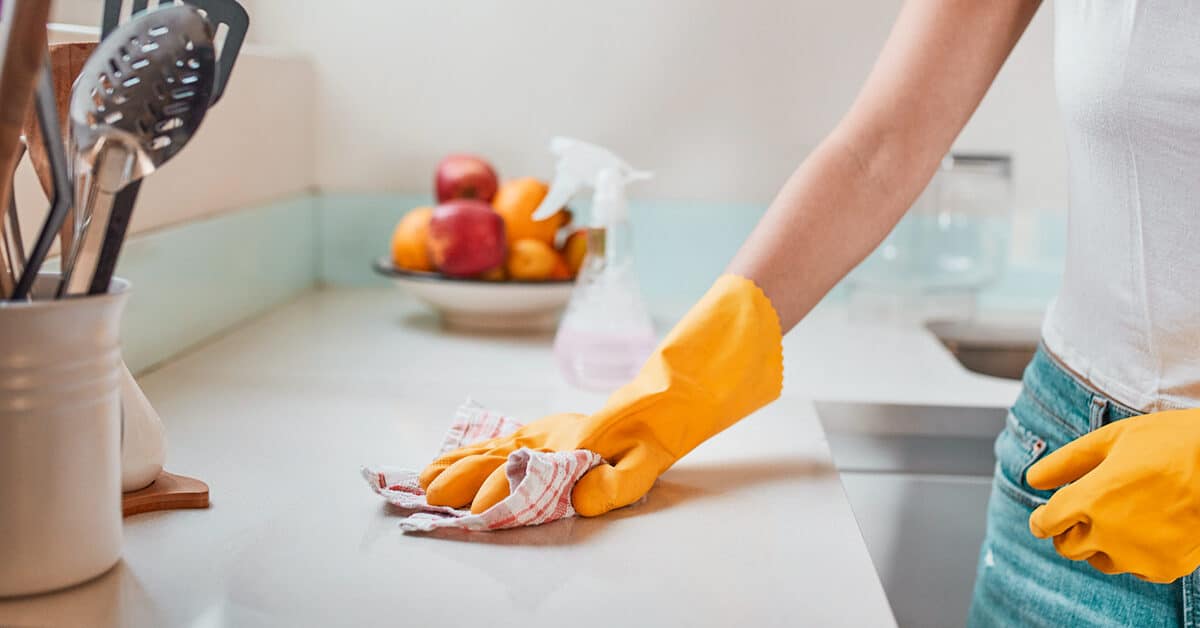
4. Vinegar Window Cleaners
Another use of vinegar around the house is window cleaning. To clean windows, you can use equal parts vinegar and water. This mixture will remove the dirt and moisture on your windows. A microfiber cloth will help you remove the vinegar residue and streaks from your windows. Baking soda can be added to the vinegar mixture to clean stubborn spots. For larger windows, mix 2 cups water with 1/4 cup vinegar and 1 tsp dish detergent. If the windows are very dirty, you can add warm water to the mixture to give it more cleaning power.
If you prefer a strong smell, you can add some essential oils. White vinegar is a common ingredient in many nontoxic cleaning products. Because of its acidity, cleaning and infecting with vinegar is very effective. It can remove dirt, grease and mineral deposits. It can also kill some germs on hard surfaces. However, you should never use this mixture in place of a sanitizing solution. Just make sure that you use the recommended amount of vinegar for the surface you’re cleaning.
One of the biggest disadvantages of store-bought cleaners is that they leave a film on your windows. However, a combination of vinegar and water can get rid of this film and streaks in a single pass. You can also add dish soap to make the cleaner stronger. Once you’re done cleaning your windows, you should wipe them dry with a fresh microfiber cloth. If streaks remain, repeat the process.
5. Vinegar as an Effective Carpet cleaner
If you’re not quite ready to buy a commercial carpet cleaning machine, you can create your own carpet cleaner using vinegar and baking soda. In addition to their versatility as spot cleaners, vinegar and baking soda can also be used to treat stains. Whether you’re looking for an all-purpose carpet cleaner or a spot-removal solution, household cleaning with vinegar is inexpensive and can help revive your carpets.
While white vinegar is an excellent cleaner for most types of stains, it may not be a good choice for wool or delicate carpets. Distilled vinegar is not recommended for carpet cleaning. In addition, you should not use too much of this solution. Also, you should never mix hydrogen peroxide and vinegar, as it can cause toxic fumes that are dangerous to your health and your skin. Unless you are using a commercial carpet cleaner, do not mix vinegar with baking soda.
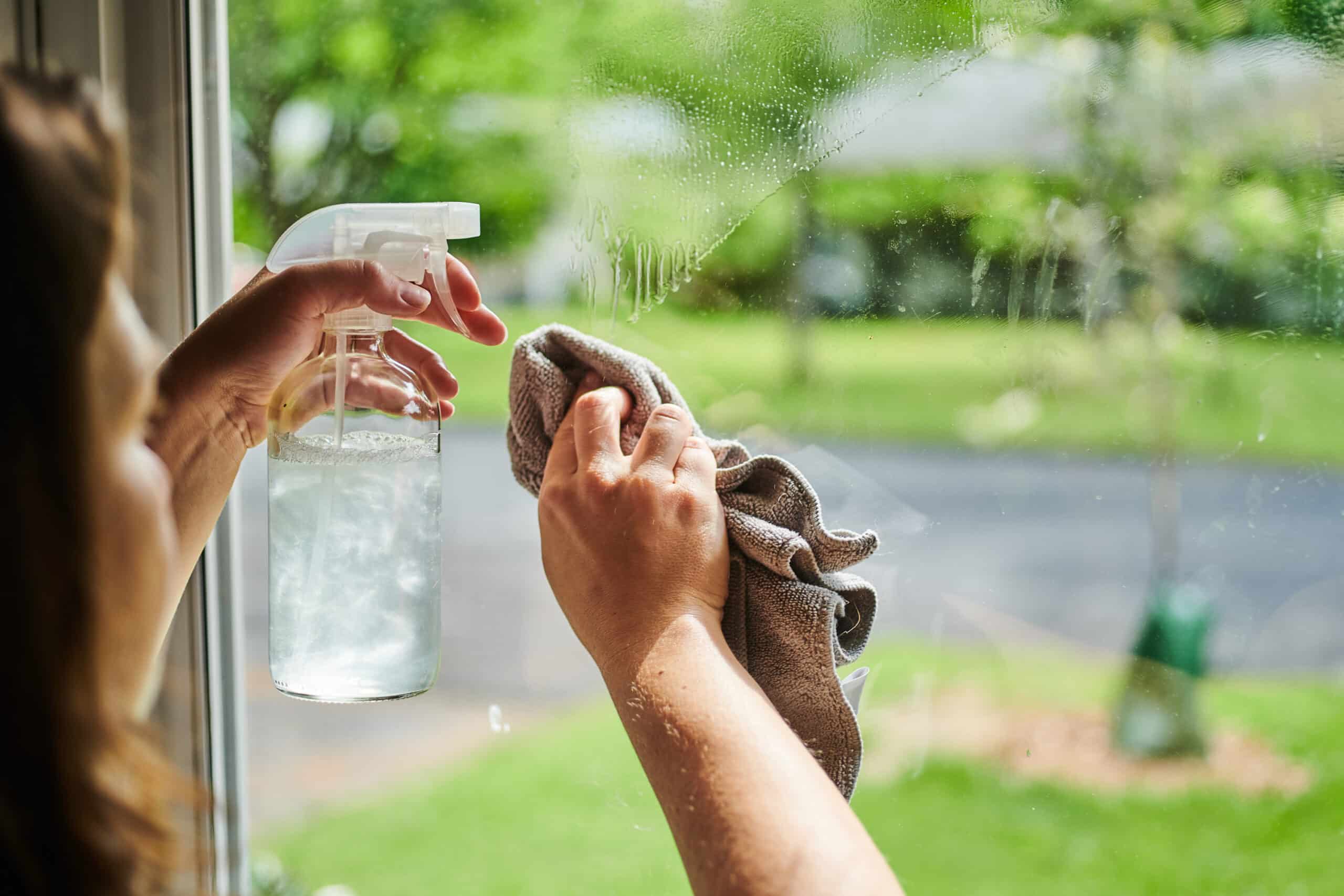
6. Vinegar and Baking Soda Bathroom cleaner
If you are looking for a non-toxic bathroom cleaner, consider using white vinegar. Its cleaning power is more than sufficient for most surfaces, including the bathroom floor and toilet. You can also mix it with baking soda to make the cleaning process faster. This is a simple method that requires little effort, but will keep your bathroom floors sparkling clean. After mixing the vinegar with water, you will need to rinse the floor thoroughly and then dry it.
The high acidity level of vinegar will scrub away bacteria and stains while acting as a powerful disinfectant it. To clean the toilet, just pour some vinegar in the bowl overnight and sprinkle with borax or baking soda. After rinsing off the solution, you can scrub the toilet.
A vinegar solution is also ideal for cleaning bathroom tiles, especially the grout between them. It should be rinsed with a wet cloth after about 10 minutes. Next, you should scrub the grout with an old toothbrush to remove any stains. Finally, you can wipe away the solution with a clean microfiber cloth. A solution of distilled white vinegar and water is an effective way to clean bathroom tiles. One tip is that it also works on tough stains.
7. Anti-Bacterial Vinegar Kitchen cleaner
Using vinegar as a kitchen cleaner can be helpful in a variety of ways. The acidity in vinegar will cut through grease and soap buildup. It can also kill bacteria and viruses. A solution of equal parts of vinegar and water can be used on a variety of surfaces in the kitchen. You can also use it to disinfect high-risk food surfaces such as refrigerator shelves and counter tops. This simple solution is very effective at cleaning different types of surfaces and will leave your kitchen looking spick-and-span and smelling fresh.
White vinegar is a great grease cutter and disinfectant. It wipes right off of the grease and leaves surfaces sparkling. It is also great for scrubbing dishwashers, which can often be filled with food and grease. Simply spray it down with a mixture of vinegar and water and wipe with a soft cloth.
If you choose to use vinegar for cleaning your kitchen, you should make sure that you use the proper type. The acid level of distilled white vinegar is 5 percent, similar to the acidity of many everyday multipurpose cleaners. Unlike non-distilled vinegar, it does not contain harmful chemicals or residues. If you choose to use distilled vinegar, make sure you dilute it thoroughly.
8. Vinegar as a Non-toxic Surface Cleaner
In addition, it is a natural cleaner, which means you won’t have to worry about the harsh fumes or toxins from other cleaning products.
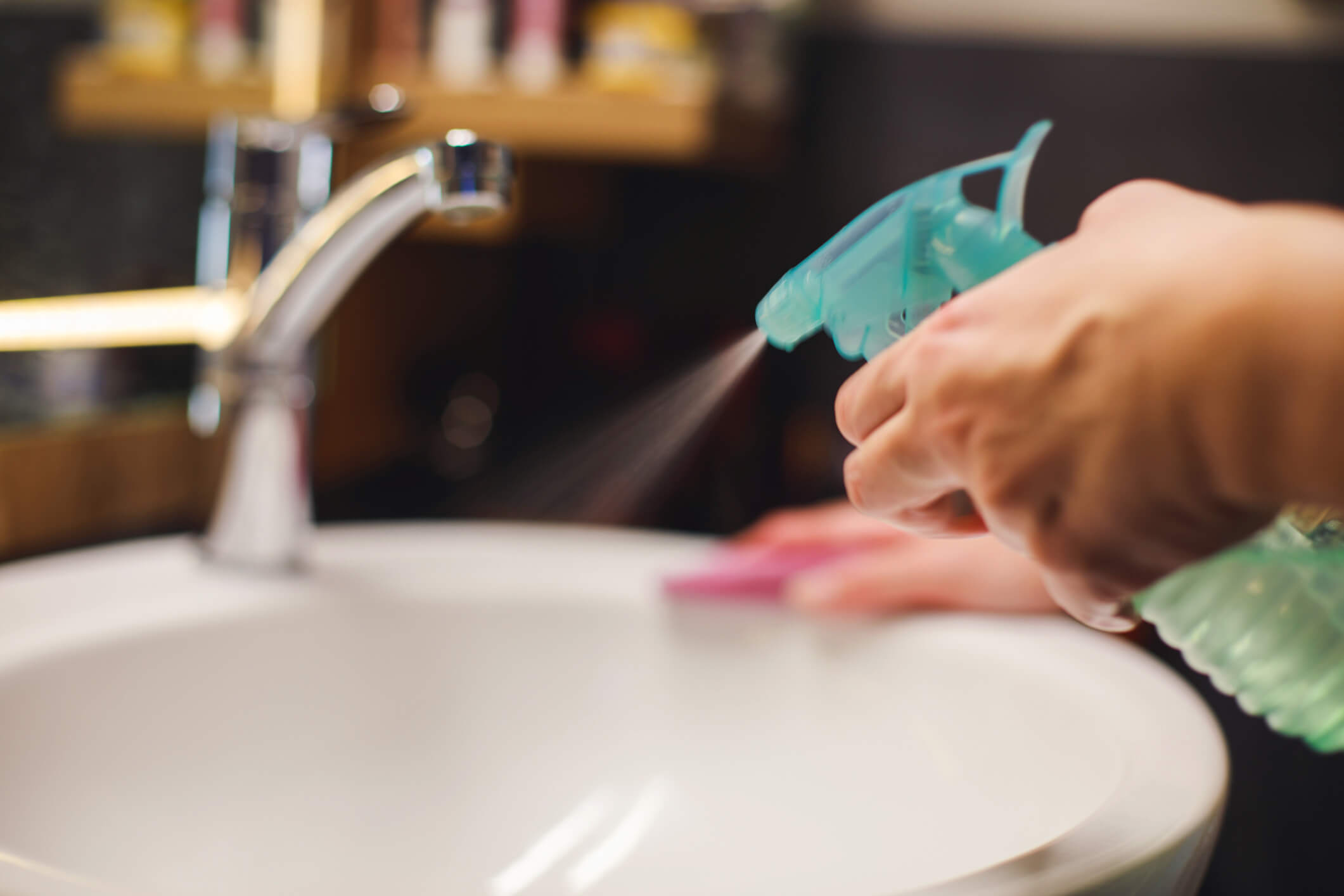
9. Furniture-friendly Vinegar Cleaning Solution
There are a variety of safe ways to use vinegar in your furniture cleaning. Its acidity makes it a great cleaning ingredient, and it is very effective at killing many kinds of bacteria. However, you should always use it diluted to protect your floors. We recommend filling a spray bottle with 50% vinegar, 30% water, and 20% lemon juice. You can also add eucalyptus or tea tree oil to give it a scent and an antibacterial property.
10. Vinegar is a Bleach Substitute
When it comes to cleaning your kitchen, bleach is a popular choice. While it is a powerful disinfectant, it is also harmful to the environment and your health. Thankfully, there are alternatives to bleach. One such alternative is vinegar. Cleaning and disinfecting with vinegar is safe and effective. It’s also a great way to save money while still using a powerful cleaning product.
11. Vinegar as a Chrome Cleaner
When it comes to cleaning your chrome appliances and pans, you can use a solution of washing liquid and vinegar. It is slightly acidic, so it is a great choice for cleaning chrome. The solution should be applied to chrome using a sponge or cloth. If you have small chrome objects, it is recommended to dip them in the cleaning solution. After cleaning, make sure to rinse the chrome very well to prevent water spots and streaks.
12. Deodorize with Vinegar
A solution of baking soda and vinegar is also effective in cleaning the refrigerator. This mixture will help you eliminate unpleasant smells and will also leave your kitchen clean and fresh. Moreover, it will also help you get rid of strong food odors that are clinging to your hands.
13. Vinegar as a Floor Cleaner
It is a cheap and non-toxic alternative to chemical floor cleaners, so it may be worth to use vinegar for cleaning if you have tile floors rather than carpeting. Before using on encaustic tiles or stone floors, however, you should do a test on a small portion.
Mix a solution of equal parts vinegar and water, then use it to clean the floor. The diluted solution not only removes grime and debris, but also protects the floor from the acid in the vinegar.
14. Remove Soap Scum, Sticky Spills, and Hard Water
You can also make a vinegar cleaning solution to do household cleaning with vinegar. Combine distilled white vinegar with filtered or distilled water. If you don’t have either of these, you can use tap water. Make sure to shake the mixture well before using it. The mixture will help you to remove soap scum, sticky spills, and hard water.
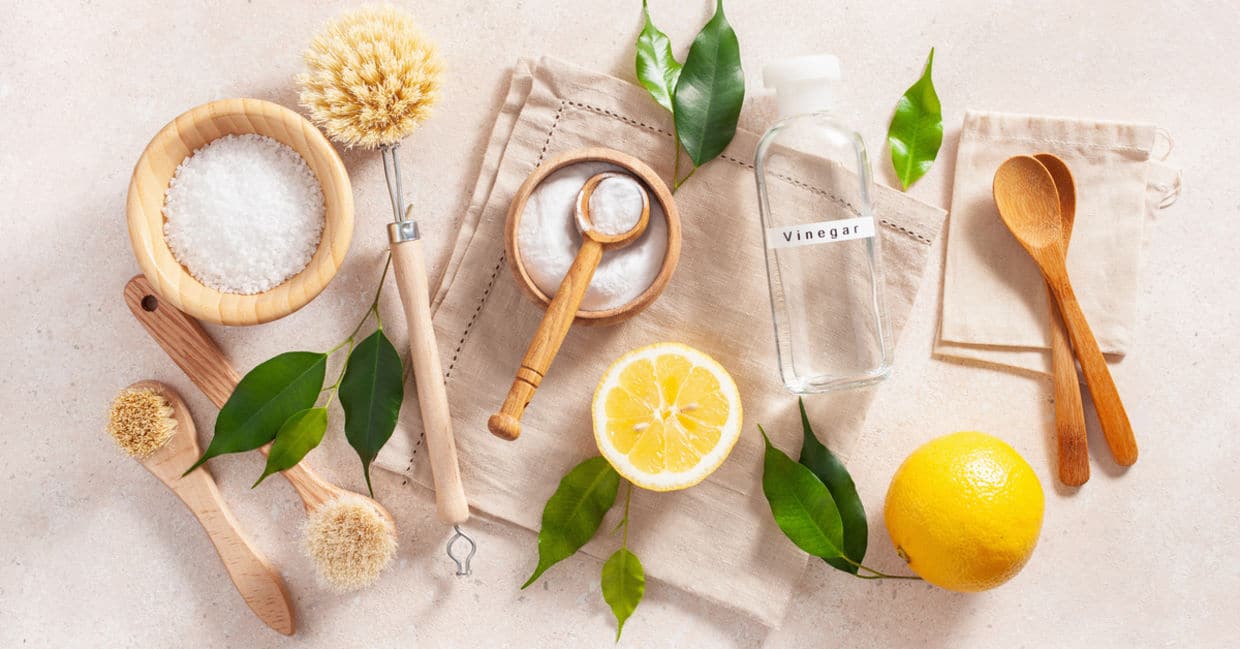
Another Effective Way to clean your home – My Cleaning Angel!
At MyCleaningAngel, we excel at providing timely and top-notch cleaning services to our customers. We have trained professional who will come to your property with all the right cleaning equipment and will leave your home spotless without you having to lift a finger. Call us today to get a free quote, whether you are an old or a new customer, you are always welcome!



